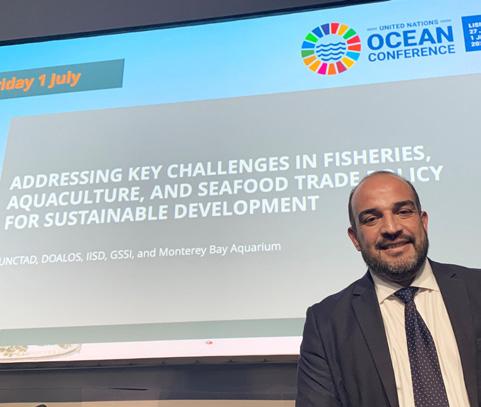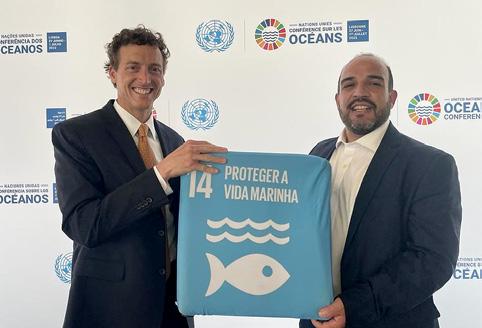
2 minute read
Antibiotics in aquaculture elevated to the global stage
Aquaculture plays a vital role in feeding the growing global population. Last year, for the first time, the United Nations recognized sustainable aquaculture as fundamental to achieve food security and support livelihoods. The recognition — made during the United Nations’ Our Ocean Conference held in Portugal — was the culmination of two years of hard work by our Seafood Watch team, as well as many other organizations, to elevate aquaculture to the global stage.
Antibiotics, which are used to control disease outbreaks in farmed salmon and shrimp — two globally popular seafood items — can harm ocean ecosystems. But banning antibiotics puts smallscale farmers in a bind as there are few, if any, cost-effective alternatives. And with climate change intensifying disease outbreaks, the time to act is now.

We continued our critically important on-the-ground efforts in Chile, Vietnam, and other countries. Our staff of global experts worked to increase understanding of how antibiotics impact marine ecosystems by engaging all stakeholders, from researchers to governments and small-scale farmers, to understand the issues they face as we work together to find solutions.
Our approaches are building trust and increasing support by stakeholders across the globe to find meaningful solutions for this important issue.
We work with the World Bank to promote sustainable solutions. Last spring, we hosted an online workshop for more than 50 global leaders. And during the United Nations Ocean Conference in June, Chief Conservation and Science Officer Margaret Spring moderated an event on managing antibiotic risks in aquaculture that featured a call for global collaboration to manage the risks.










